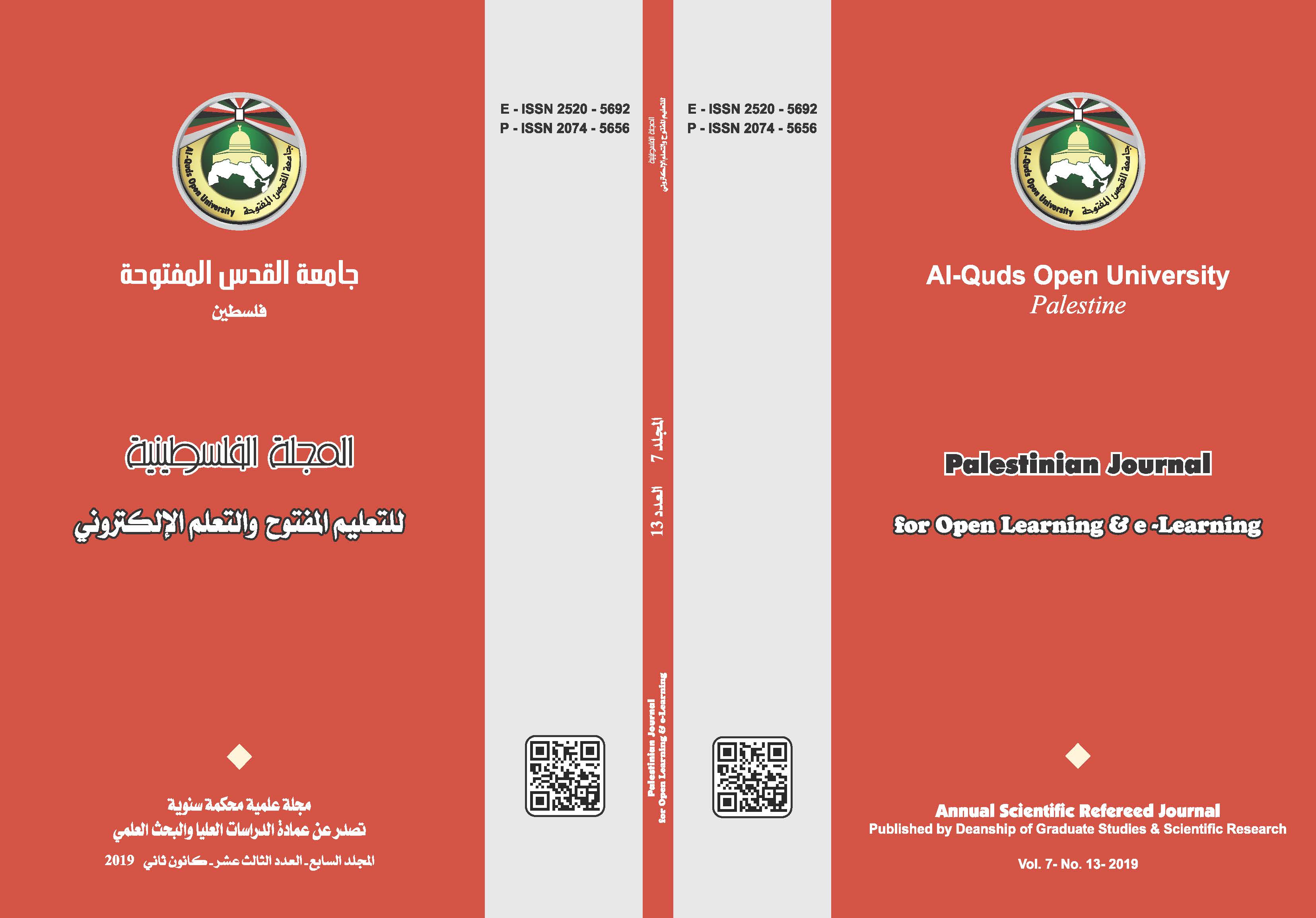اشتقاق تصنيف لتقنيات الويب (2.0) التعليمية
الكلمات المفتاحية:
اشتقاق، تصنيف، تقنيات الويب التعليمية.الملخص
تعرض هذه الدراسة طرق ونتائج تحليل تنميطي لتقنيات الويب (2.0). لقد أدى استعراض شامل ضمّ أكثر من (2000) رابط إلى تحديد أكثر من (200) تقنية من تقنيات الويب (2.0) كانت مناسبة لأغراض التعلم والتدريس. وشمل التحليل التنميطي تطوير أبعاد الويب (2.0) ذات الصلة، وجمع القضايا وفقاً للانتظام الملحوظ وبنية الأنماط بناءً على علاقات ذات مغزى. وقد دمج توصيف الأنواع المنظمة تفصيلات تستند إلى المميزات، وأمثلة للاقتراحات وقضايا الاستخدام التربوي النموذجية. وأدى التحليل إلى تصنيف (37) نوعاً من تقنيات الويب (2.0) التي رُتِبت في (14) مجموعة. وتشير نتائج هذه الدراسة إلى أن المعلمين لديهم عادة تصور محدود عن تقنيات الويب (2.0)، وأن هناك مجموعة واسعة من أدوات ومداخل الويب (2.0) التي لم تُسَخر تماماً من قبل مصممي التعلم والباحثين التربويين.
التنزيلات
منشور
2019-03-11
كيفية الاقتباس
الجهني د. ل. س. (2019). اشتقاق تصنيف لتقنيات الويب (2.0) التعليمية. المجلة الفلسطينية للتعليم المفتوح والتعلم الإلكتروني, 7(13). استرجع في من https://journals.qou.edu/index.php/jropenres/article/view/1830
إصدار
القسم
ابحاث ومقالات مترجمة
الرخصة
- الالتزام التام بأخلاقيات البحث العلمي.
- الالتزام التام بحقوق الملكية الفكرية.
- حقوق الطبع والنشر تؤول للمجلة.
- الحصول على موافقة المجلة لإعادة نشر البحوث أو ترجمتها.
- الالتزام التام بتعليمات هيئة تحرير المجلة.







2.png)






_2.png)

